Fun Fact (something about you that people may not know already):
I once made grilled cheese sandwiches for T-Pain and his entourage.
How did you first become involved with the National Runaway Safeline?
I was in search of something fulfilling to do with my free time, so I searched around a bit for volunteer opportunities online. NRS stood out to me because it didn’t have any agenda or ideological bent to it. The mission is simple: to help make things better for youth and their families, if only by giving them a place to talk.
What keeps you coming back?
The sense of resolution I get from a great call leaves me feeling useful and connected in a way I haven’t experienced anywhere else. When I feel like I’ve helped someone sort out their problems, even a little bit, I leave the call center feeling better than I did when I walked in. Even though we’re dealing with other people’s issues as liners, that process of connection can be very therapeutic for both the caller and the liner.
What have you learned from your experiences here?
When I first started volunteering at NRS, I was always nervous about doing my job perfectly. There’s a fair amount of pressure that comes with crisis intervention, as you certainly don’t want people to hang up feeling worse than they did when they called. And the sheer amount of new information to contend with is pretty daunting. But in my time here so far, I’ve discovered that a lot of callers find the bulk of their needs met in feeling validated, acknowledged and heard. If you listen carefully and meet each caller with respect, no matter their situation, this process works. People call our line because, a lot of the time, they don’t have anyone else in their lives to talk to. By simply being that person and letting callers know that they’re not alone, we make more of a difference than we might anticipate.
Give us a story from your experience that stuck with you:
One night, I received a call from a youth in tears. She told me her parents were increasingly manipulative, critical and emotionally abusive and, worst of all, that she felt guilty for complaining about her parents to anyone, including her counselor at school. It was that particular call that made me realize how important it is to validate emotions. This girl’s situation, already painful and challenging, was exacerbated and frozen in place by shame. As liners, we have the opportunity to alleviate that shame, to help callers face their situations honestly and courageously by simply listening to them fearlessly and compassionately.
Open Mic Moment (this is your chance to say whatever you would like):
During one of my supervisions, Jamin told me to focus on the caller, to listen as carefully as possible instead of worrying about the right thing to say. That advice has stuck with me, both in and out of the call center.





